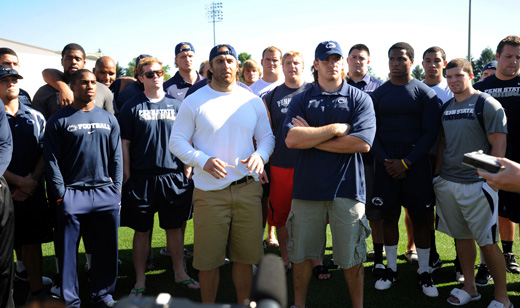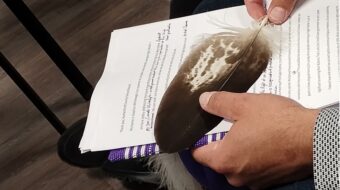
The criminal conviction of former Penn State football coach Jerry Sandusky and the allegations in the Freeh Report that the highest echelons of the university administration covered up Sandusky’s horrific sexual abuses rightfully outraged the nation. Joining in that outrage was the governing body of college sports, the National Collegiate Athletic Association. The NCAA chose to punish Penn State by fining it $60 million, banning the football team’s participation in a bowl game for four years, vacating all football team wins since 1998, a reduction in recruitment scholarships and a five-year probation.
The penalties levied against Penn State were shocking — because many people wanted even more punishment of Penn State, and because the NCAA failed to acknowledge its role in the damaging culture it sought to attack.
The reputations of Penn State and the officials involved in the alleged cover-up are in shambles. The university is facing the possibility of massive fines from a Department of Education investigation into whether the school violated the Clery Act by not reporting Sandusky’s offenses. Many of the top officials involved in the alleged cover-up are facing criminal charges. Civil lawsuits will also be filed by the victims of the scandal. The combination of social stigmatization, embarrassment, criminal court cases and civil court suits should be sufficient to penalize the school.
Yet, it was confounding that people wanted more punishment, especially a flawed and incomplete punishment from such a flawed institution as the NCAA.
In doling out the punishment, NCAA President Mark Emmert attempted to ground it in the importance of education for students and confronting the “win at all costs” sport culture that helped contribute to the cover-up of Sandusky’s offenses. However, these rationales fall apart upon closer examination.
If the NCAA believes in making education a priority, then why is it taking away scholarships from up to 80 student athletes over the duration of the penalty? Prospective recruits who had nothing to do with the scandal will be denied educational opportunities under the guise of “punishment.”
Equally as disturbing are the NCAA and President Emmert overtly and implicitly advocating an agenda of making football and/or basketball a top priority on campuses. Schools across the nation have seen coaches receiving top dollar compensation and millions being spent on construction of new athletic facilities while tuitions have increased and budget cuts abound. For the NCAA to not acknowledge their participation in this toxic relationship is to lie by omission.
It is also unfortunate that the punishments have made media spend even more time focusing on the football team and how these penalties will affect the team, the university and the community.
While it may feel just for the NCAA to flex its might in penalizing Penn State, it is worrisome on all these levels.
The punishments are also incomplete. Any investigation that punishes football players a decade after the fact but exempts people like Tom Corbett — the Republican governor of Pennsylvania but attorney general when the Sandusky allegations began — is problematic. There are questions about whether Corbett’s use of his prosecutorial discretion to not pursue the allegations was influenced by his planned gubernatorial run, and by his accepting money from a Sandusky-affiliated charity and several Penn State supporters.
There is no defense of Sandusky’s horrific crimes and the alleged Penn State cover-up. While people thirst for justice and punishment, it is important that we analyze the systems of power to make sure the punishments will meet the intended ends and that the correct parties are targeted.
Photo: Penn State senior running back Michael Zordich, left foreground, and senior linebacker Michael Mauti, right foreground, give a statement in support of their team, as other players look on, July 25, in State College, Pa. Nabil K. Mark/The Centre Daily Times/AP

MOST POPULAR TODAY

Zionist organizations leading campaign to stop ceasefire resolutions in D.C. area

High Court essentially bans demonstrations, freedom of assembly in Deep South

Communist Karol Cariola elected president of Chile’s legislature

U.S. imperialism’s ‘ironclad’ support for Israel increases fascist danger at home







Comments